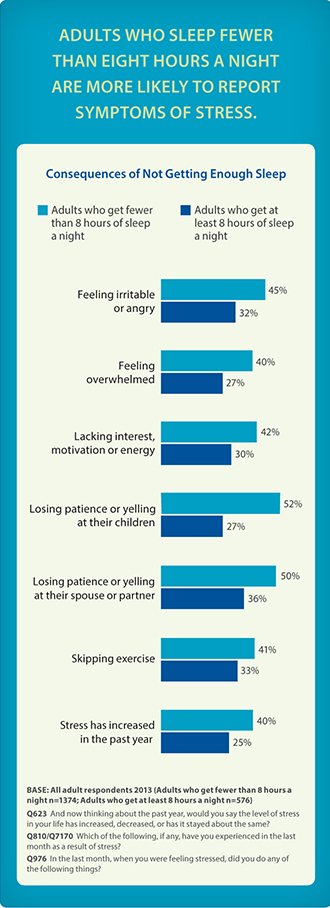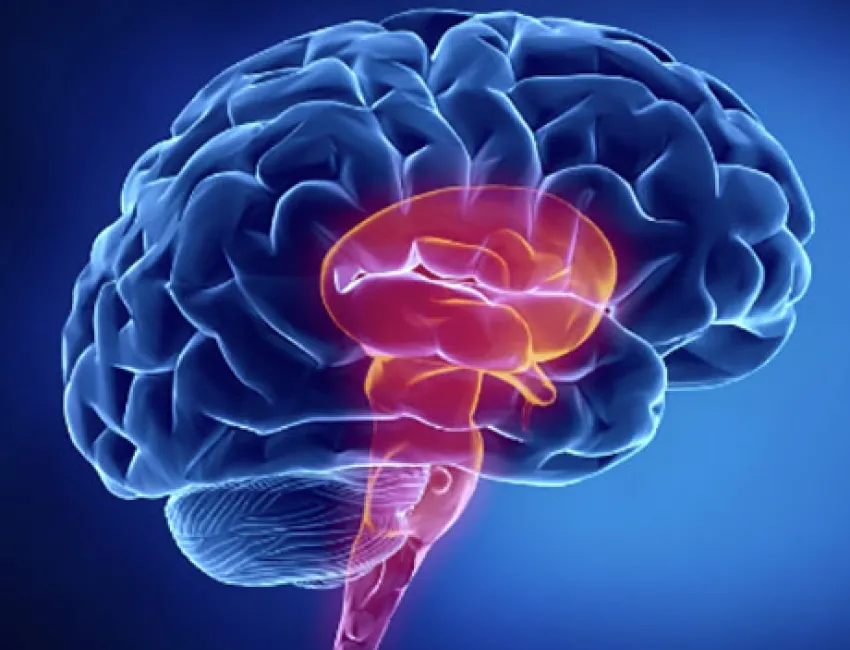
Stress is how the brain and body respond to any demand. Every type of demand — such as work, school, major life changes or a traumatic event — can be stressful. Stress can affect your health, so it is important to develop skills and habits early to release and manage your stress. Here are some research-based techniques to help you rise above stress.
- Generally is a response to an external cause, such as taking a big test or arguing with a friend.
- Goes away once the situation is resolved.
- Can be positive or negative. For example, it may inspire you to meet a deadline, or it may cause you to lose sleep.
Both stress and anxiety can affect your mind and body. You may experience symptoms such as:
- Excessive worry
- Uneasiness
- Tension
- Headaches or body pain
- High blood pressure
- Loss of sleep
- Generally is internal, meaning it's your reaction to stress.
- Usually involves a persistent feeling of apprehension or dread that doesn't go away, and that interferes with how you live your life.
- Is constant, even if there is no immediate threat.
What:
A practice where you focus your attention and eliminate the jumbled thoughts that may be crowding your mind and causing stress.
Why:
Improves your emotional wellbeing (ex: increasing self-awareness) and helps with sadness and stress
How:
Guided Meditation: You form mental images of places or situations you find relaxing (e.g., the beach, the mountains, a quiet coffee shop).
Mantra Meditation: You silently repeat a calming sound, word, thought or phrase to focus on and prevent other thoughts from entering your mind.
Yoga: You perform a series of postures and controlled breathing exercises to promote a more flexible body and a calm mind.
Check out the video below to start meditating now.

What:
Physical activity can happen anywhere – at a gym nearby or with a quick walk in the neighborhood. It can look like dancing, playing sports, yoga, and so many other activities. However you can get your body moving in a way that is comfortable and enjoyable is a great form of exercise.
Why:
Exercising is a form of physical stress and demand. Engaging in consistent exercise helps the body manage other forms of stress that we face everyday (https://www.apa.org/topics/exercise-fitness/stress). Physical activity releases a whole host of feel good and stress relieving nuerotransmitters such as endorphins, dopamine, GABA, norepinephrine, and many more.
(https://www.sciencedaily.com/releases/2016/02/160225101241.htm) (https://www.hopkinsmedicine.org/health/wellness-and-prevention/the-truth-behind-runners-high-and-other-mental-benefits-of-running). This can leave you feeling happier and more relaxed. Also increases and strengthens new brain cells and connections, which improves your memory, alertness and attentiveness, leading to faster learning.2
How:
Running, walking, biking, hiking, playing a sport, working out in the gym, swimming, dancing, kickboxing, etc.
Check out your local recreation center for different group activities, gyms, and pools.

What:
Sleep is an essential bodily function. While you are sleeping your body is doing a lot of hard work, "Sleep affects almost every type of tissue and system in the body – from the brain, heart, and lungs to metabolism, immune function, mood, and disease resistance."
Why:
Lack of sleep increases levels of adrenaline and cortisol, making us feel wired, edgy and stressed. When proper amounts of sleep are not achieved, the body is not able to undergo the repair process that normally would happen then. This means that stress hormones are increasing, physical stress experienced by the body is heightened, and brain development is slowed. Getting the right amount of quality sleep can alleviate all of these stress factors.
Teens who sleep fewer than eight hours per school night report higher stress levels in the past month than teens who sleep at least eight hours per school night (5.2 vs. 4.1 on a 10-point scale).6
How:
Getting better sleep involves:
- exposing yourself to sunlight in the morning
- being active
- having a sleep routine
- leaving electronics out of your bedroom
- avoiding bright screens within 1-2 hours of your bedtime
- making sure the room is dark when you go to sleep
- limiting caffeine
What:
A well balanced diet can look a variety of ways depending on location, culture, and personal preferences. Our bodies need a combination of macronutrients and micronutrients in order to function properly. Macronutrients, protein, fat, and carbs, make up the main portion of what we consume to create energy. Micronutrients, vitamins and minerals, come in smaller amounts but are crucial for short term and long term health.
Why:
There is a cycle that can occur between stress and meeting your nutrient needs. When you are in a state of stress, your body has a higher need for nutrients and if you don’t meet your body's needs, that can lead to more stress. Providing your body with calories and nutrients allows it to function to its best ability. In times of physical and/or environmental stress, your body needs all the support it can get in order to help you through.
How:
Eating healthy does not mean eating solely organic food. It is important to eat a balanced diet that is based on moderation and what works best for you.
- Meal Prepping - If you find it hard to make meals or snacks before school it might be helpful to plan out what you’d like to eat the day before.
- Mix it up - Trying new foods can be a great way to get new forms of fruits, vegetables, and protein into your diet. Many cultures incorporate these items in different ways and maybe there is a dish you’ve never tried that might be your favorite way to eat veggies!
- Listen to your body - If you are feeling hungry try to find something that will help fill up your body and provide all the good things to keep your body going. If you are eating and start to feel full, save what you have for later. It might be difficult if you are not used to tuning in for these cues but they can help make sure you are getting what your body needs!
Sometimes all you need is someone to talk to who might understand what you're going through. Find someone that you feel comfortable talking to like a relative, teacher, friend or mentor. It might be hard at first to open up, but they might have experienced the same thing or might know how to get you help.
Regardless of the situation that’s causing you stress, it is always important to share. It is better to deal with your stress NOW than to let it bottle up. If you continue to bottle it up, it can lead to other problems, such as limiting your ability to focus in school or at work. It could lead to more stress in your life and even cause you to get sick.
If you need professional support to help you manage your stress, get in touch with Colorado Mental Health Line.
1 http://www.huffingtonpost.com/2013/03/17/reduce-stress-research_n_2884876.html
2 http://www.adaa.org/understanding-anxiety/related-illnesses/other-related-conditions/stress/physical-activity-reduces-st
3 http://www.apa.org/research/action/sleep.aspx
4 https://sleepfoundation.org/sleep-topics/teens-and-sleep
5 http://www.apa.org/research/action/sleep.aspx
6 http://www.helpguide.org/articles/sleep/how-to-sleep-better.htm
7 http://www.pcrm.org/health/health-topics/how-to-eat-right-to-reduce-stress
8 http://www.stress.org.uk/eat-yourself-calm/
9 http://files.eric.ed.gov/fulltext/EJ688443.pdf
10 http:/www.medicaldaily.com/therapeutic-science-adult-coloring-books-how-childhood-pastime-helps-adults-356280
11 http:/www.colourtation.com/brain-science





